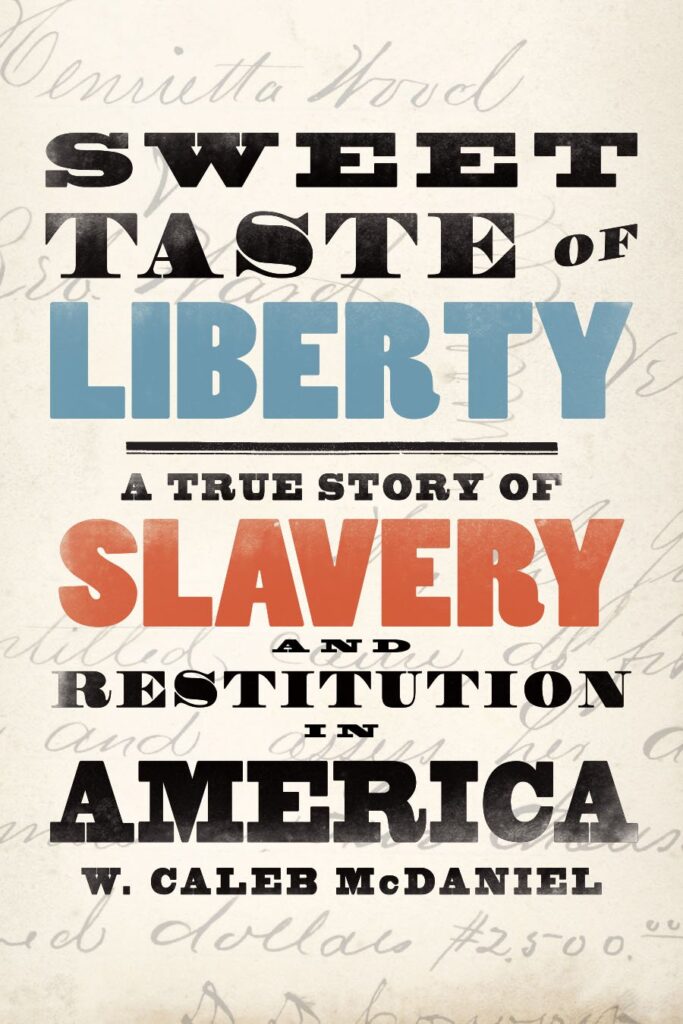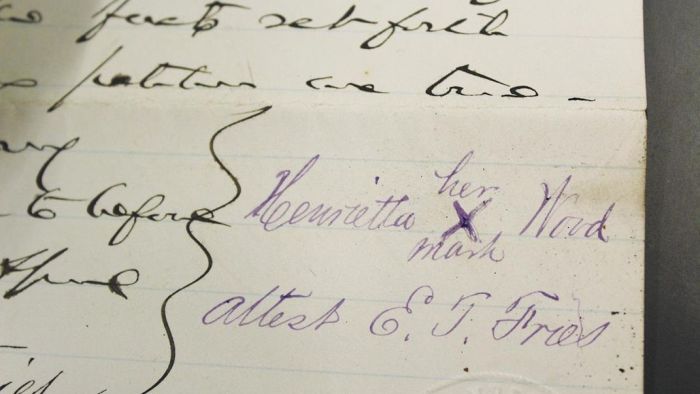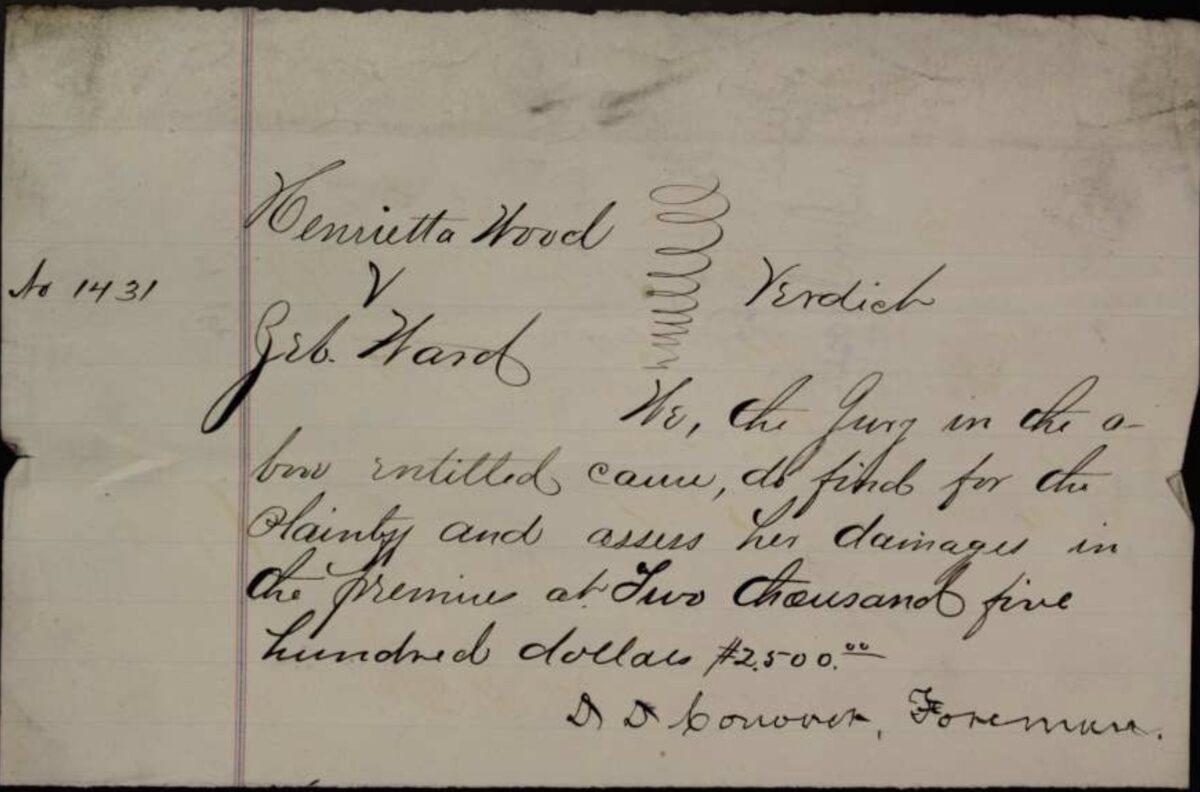One hundred and fifty years ago this month, Henrietta Wood sued the man who kidnapped her and sold her back into slavery.
In his lifetime, that man — a prison warden and general scoundrel named Zebulon Ward — often bragged about losing the case, saying “he was the last American ever to pay for a slave.”
But Ward has become an ugly footnote. The woman who suffered that injustice, whose story has almost been lost in obscurity, will never be forgotten again.

Sweet Taste of Liberty
A True Story of Slavery and Restitution in America
W. Caleb McDaniel
Oxford University Press
Last month author and Rice University professor W. Caleb McDaniel won the Pulitzer Prize in History for this compact but potent story, an achievement that feels like a master class in archival research.
Past winners of this honor have been grand, sweeping tomes exploring vast reaches of American history. Sweet Taste of Liberty is a little different, an intimate story of one woman’s survival presented as a sobering illustration of the chaotic definitions of freedom in America’s border states in the 1850s.
Wood was born into slavery in Kentucky; she was later freed when she was brought into Ohio. By crossing the border, she technically gained her freedom. (Most enslaved people, however, were purposefully kept from this information.)

Her mistress eventually did register her as free. But in a warped system where ‘freedom’ simply means a piece of paper indicating your freedom, great and frequent abuses meant that many formerly enslaved (and sometimes never enslaved) people were kidnapped and sold to plantations in the Deep South.
For Wood, the theft of her freedom was just the beginning.
From the words of just a couple newspaper interviews she later gave, McDaniel is able to piece together Wood’s entire world, finding her voice and dignity through increasingly fraught and intolerable scenarios.
Wood’s story is unique not because of the legal reparation she received, a stunning result and hardly destined given the circumstances. (It took Wood years to finally succeed in court.)
Her story is exceptional because it was told at all.

